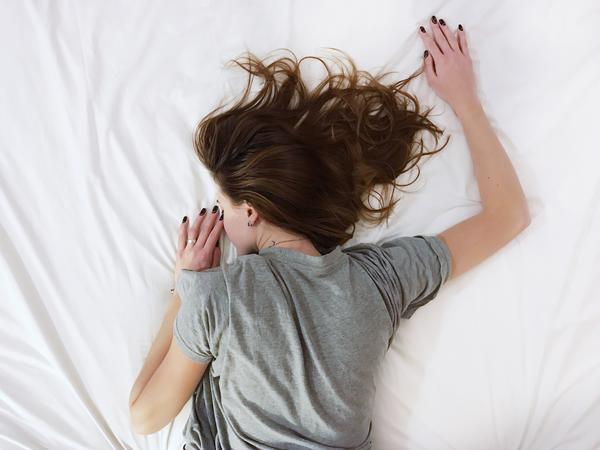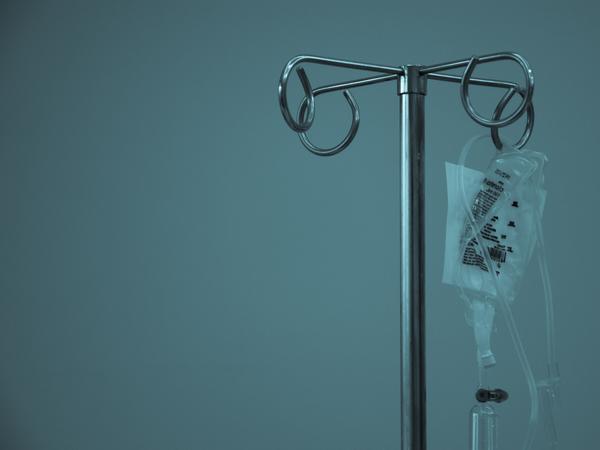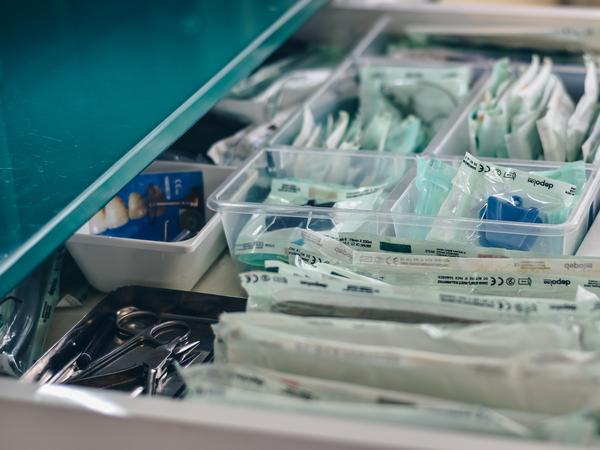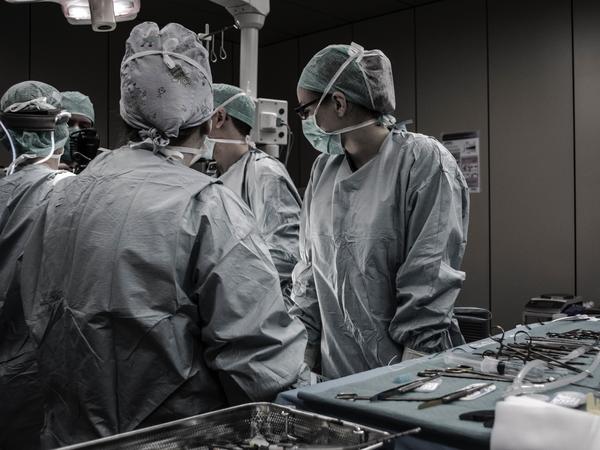Endometriosis - The chaos in the lower abdomen
Anne has endometriosis. I am very grateful that she talks about it openly and wrote me this article. So what endometriosis is, what Anne had to go through and how everything developed, she reports here. Thank you, dear Anne for your openness and courage! You are so strong and can give strength to many women! The rest of the text is now from Anne. (Natalie)
"Yes, I always have the cramps when I have my period, Bach flower tea helps me."
"Have you ever tried something homeopathic?"
"Yes, come on, period pains are normal. Aren't you exaggerating a bit?"
"I can't see anything suspicious about you on the ultrasound, there's nothing wrong there."
"There you go, that's totally normal to have pain during your period. And you can't keep taking painkillers. I prescribe them a tea; my patients swear by it."
"So if you're allowed to take sick days because of period pain, now I stay home with a cold all the time, too."
"You really got a disability rating for endometriosis? So don't get me wrong, I'm happy for you, but it's a bit much, isn't it?"
"I'm telling you, those hormones are absolute poison. I guarantee it's the pill."
"Probably irritable bowel syndrome. I recommend a change in diet."
"You want to allude to the fact that you have endometriosis of the intestine?- That's highly rare. Oh you know, there's so much on the internet. But if you really have that kind of pain, I would suggest you try a gastroenterologist."
If you have endometriosis, there are two problems at once. One, of course, is the disease itself, and the other - and this strikes me as almost as begrudging - is the fact that really nobody knows what it even is.
What is endometriosis?
Good question. One doctor explained to me that it is nothing more than an aggressive, benign form of cancer. Endometriosis has many faces because it occurs differently in everyone. In different places, at different times, and in different forms.

For many women, it's the reason they wait in vain for a child; for others, it's the reason why an ordinary day can become an ordeal. It's the pain that can drive you out of your mind on some days. Other days, depending on a woman's normal cycle, you can't leave the house without a hot water bottle, other days you feel great.
Unfortunately, there is still no reliable information about endometriosis, where it comes from and why it comes. What is certain is that it is mucous membrane that resembles the lining of the uterus, proliferates and in the worst case grows together with other organs and grows into benign tumors. The often black growths are called endometriosis lesions; are often inflammatory and hold lots of surprises. The severity is classified in grades from I to IV.
Accompanying symptoms do not take long to appear once a certain degree is reached.
Some days I felt as if I could feed a small African village with my water retention, at times I could not leave the house because I could not be sure without the presence of a toilet nearby. If I didn't have diarrhea, I couldn't go to the bathroom for 5 days at a time and felt feverish, tired and weak.
My belly always swelled to a considerable size during this time, which I would group into the second trimester of pregnancy under healthy circumstances. Yes, endometriosis is painful, annoying, and unfortunately, unappetizing.
Among doctors, endometriosis is affectionately called the "chameleon" of diseases because it is so changeable and so hard to find. Let me tell you something - chameleons are wonderful animals and they don't hurt anyone. Endometriosis can very well hurt you. From permanent, debilitating pain to being unable to work.
It all started with a slight pulling sensation in my abdomen, later it was a permanent squeeze, followed by diarrhea, migraines, circulatory collapses and back pain. At the age of 19, I was already sitting at the 5th gynecologist, who prescribed me the 13th hormone preparation; not without patiently mentioning that pain during the period was normal and that he could no longer help me.
Constipation, for days, followed by painful diarrhea, sometimes so severe that I would slump on the toilet during bowel movements and fall off the toilet or have to breathe the pain. The symptoms only occurred in connection with my period for the first few years and only later became permanent.

The IUD gave me a little respite for a year after giving birth, after a gastrointestinal endoscopy also found nothing wrong. I didn't get my period anymore and felt great, except for the pain when doing my business. Then my body rejected the spiral and it started all over again.

Two years later I had an ectopic pregnancy and found myself in a hospital with heavy bleeding. That's when I had the idea and asked the doctors to take a look inside me, if they were inside anyway.
Yes, black humor has always been my thing. The doctors were surprised by what they saw - I rather less. The intestines and peritoneum were the most affected.
According to the surgery report, there were several "foci extending up to 5cm" throughout my pelvic cavity. It was to take another 18 months, three temporary bowel obstructions, numerous fall bleedings and, last but not least, 9 months of hormone treatment until I went in for another operation two weeks ago, during which everything was finally removed.

The surgery took three times as long as expected; the day after surgery, the doctor came to my bedside and put his hand on my shoulder. "It was a real struggle," he said. "But I removed everything I saw."
When he left the room again, all I could do was cry. Out of sadness for all the years I felt like a whimpering whiner; a mimosa; until at the end I believed myself I was imagining it all. Out of sorrow for all the pain and the good sex that I had missed out on because I had to stop because of the pain. Out of sadness about the parties I missed out on because I was too tired from the hormone therapy, about all the wasted time at gynecologists who didn't take me seriously, and not least out of relief that I wasn't imagining it all after all.
For many years it was not talked about, because the shame of having a gynecological disease is still deep in the minds of women. People did not talk about such things and even today I still meet many people who believe in their half-truths and tell me that pain during the period is completely normal.
I'll try to put it objectively: If you can still get up every day and go to work normally, a little pulling and pinching doesn't spoil your mood and you can still reproach others not to act like that, then you most probably don't have endometriosis.
If Bach flowers, some homeopathic frippery or your grandma's organic herbal tea help you against endometriosis symptoms, then you don't have endometriosis, damn it! Consider yourself lucky!
If you are struggling with unspeakable pain that is ruining your day in spurts, if you are suffering from circulation problems due to this pain, collapsing while standing, bleeding to the point that you have to go to the bathroom every 30 minutes some days, and starting to feel like this is all starting to limit you, then you should go to an experienced gynecologist or a certified endometriosis center.
Endometriosis is not a figment of your imagination and it is not a walk in the park. But most importantly, it is not curable. Once you have it, you have a good chance of finding yourself on the operating table every few years or even months. The only effective medicine is empathy and knowledge.
Recommended reading:
1. Martina Liel - Not without my hot water bottle.
2. website of the Endometriosis Association
If you'd like to read more from Anne, feel free to visit her Facebook page or blog.
Image sources:
The cover image of the article is royalty free to use and comes from unsplash.com.
The image in the article of the hospital drawer comes from unsplash.com.
The image in the article of the stand in the hospital also comes from unsplash.com.
The image in the article of the surgery team also comes from unsplash .com.
The image in the article of the woman also comes from unsplash .com.
No comments yet.